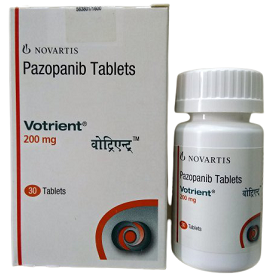What are the First Signs of Kidney Cancer?

First Signs of Kidney Cancer
Cancerous cells in the kidney cause kidney cancer. The kidneys are two bean-shaped organs that aid in filtering blood waste and synthesizing red blood cells. The kidneys also eliminate acid that is created by your body’s cells and keep the amounts of water and minerals in your blood—such as salt, potassium, phosphorus, and calcium a healthy range. Renal cell carcinoma represents the most prevalent form of kidney cancer in adults.
There may be more or less usual kidney cancers. A special kind of kidney cancer called Wilm’s Tumor is mostly seen in young kids. This appears to be becoming a more common concern with time. Most cases of kidney cancer occur in individuals in the age range of 65 to 74.
Symptoms
In its early stages, kidney cancer might not show any signs. The development of the tumor leads to the emergence of a variety of symptoms. Because of this, kidney cancer generally isn’t discovered until it has started to spread. One of the earliest symptoms is hematuria, or blood in the urine, as the kidneys produce pee. One can feel a solid mass surrounding the kidney region through the skin. Thirdly, flank pain is a typical symptom. The region between the hips and the ribs on each side of the lower back is impacted by flank pain.
In addition to these, loss of appetite, hypertension, loss in body weight, high amounts of calcium in the blood, and a marked reduction in the production of red blood cells, which results in anemia, are significant warning signs.
Diagnosis
There are multiple methods and tests which can help in the identification of cancer. Urinalysis, a test that determines whether a sample of your urine includes blood, is one of the procedures that can aid in diagnosing and evaluating kidney cancer. In addition, blood tests that show the body’s electrolyte levels, CT scans, and MRIs can also aid in diagnosis. Tumors can be found with ultrasound because they have varying densities from healthy tissues.
Treatment
For the majority of kidney cancer stages, surgery is the recommended treatment. Several surgical options might be taken into account. There are two types. Partial nephrectomy occurs when the surgeon removes the tumor-bearing portion of your kidney. On the other hand, radical nephrectomy involves removing the entire kidney along with some of the surrounding tissue.
Additionally, certain local lymph nodes may be removed.
When there is no possibility for surgery. One option is targeted medication therapy. Targeted medication therapy stops several traits that support the growth of cancer cells. These medications, for instance, can halt the development of brand-new blood vessels or cancer-feeding proteins. One of the many drugs used in this is votrient 200mg tablet. It is a protein kinase blocker with the salt composition of pazopanib 200 mg and is used to treat soft tissue sarcoma and kidney cancer.
Votrient 200mg is a medication used to treat kidney cancer by preventing the growth of cancer cells there. It functions as an anti-cancer drug by attaching to and blocking the enzyme receptor (tyrosine kinase) that promotes the growth of malignant cells. The growth of blood vessels in the tumor is also stopped. In addition, it helps to eliminate cancer-related side effects like back pain and exhaustion.
The most frequent side effects of the medication are diarrhea and high blood pressure. A medical professional should determine the appropriate dosage and frequency of administration. To prevent major adverse effects, it should be used as prescribed by the doctor.


 Anti Cancer Drugs
Anti Cancer Drugs Hepatitis C
Hepatitis C Meds for HIV
Meds for HIV Ayurvedic Medicine
Ayurvedic Medicine Transplant Medicine
Transplant Medicine Respiratory System
Respiratory System +91-9999064250/ 9811604424/ 9811604444
+91-9999064250/ 9811604424/ 9811604444  8(800)100-47-90
8(800)100-47-90